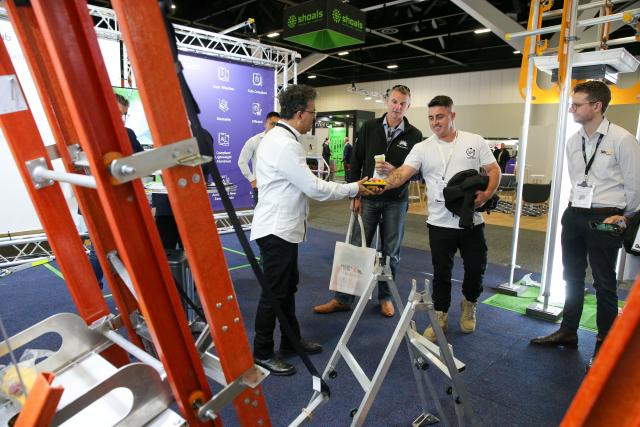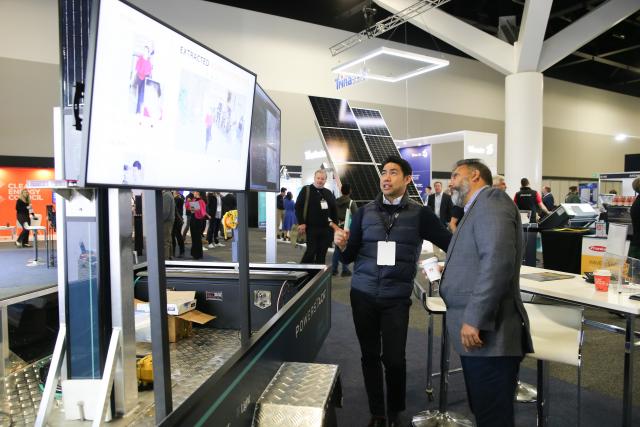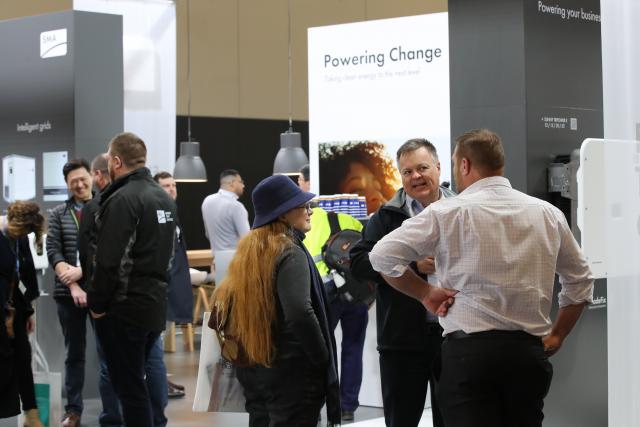Energy Next, powered by All Energy Australia, will transform the ICC Sydney into a showcase of Australia’s clean energy future on 18-19 July.
Featuring some of Australia’s most experienced and innovative clean energy experts and organisations, Energy Next will host over 20 different expert talks, presentations and panels on topics such as EVs, Microgrids, Energy Storage, Solar PV, Wind Energy, Virtual Power Plants, Energy Data and Hydrogen & Ammonia.
Talks include insights from ACA Research on the current state of the consumer EV market, whether Perovskites are the future of Solar Energy, the role microgrids can play in decarbonization, the future of lithium-ion battery chemistry, how virtual power plants can unlock the value in a net zero transition, what Super Hybrids’ role is in making Australia a green superpower and how AI can predict future breakdowns in the renewable energy supply chain.
Outlined below are a few of the highlight topic areas set to be discussed at Energy Next.
EVs
Following increased attention and significant investment from the government (with even more expected over the next four years), it’s an exciting time for electric vehicles in Australia. The NSW Government has set a goal of at least 50 per cent of all new car sales to be EVs by 2030-31, promising almost half a billion in tax cuts and incentives to get us there.
Though it’s a promising start, there is still a lot of work to be done in order to make this a reality. As part of this discussion, Energy Next will feature a number of EV consumer based talks and a panel discussion focusing on EV infrastructure.
‘Model T to Tesla: The Consumer Journey to Electric in 2023 and Beyond’ presented by Amelia McVeigh from ACA Research, will share insights from the ACA Research’s Consumer Automotive Program for the first time, revealing the current state of consumer electric vehicle sentiment, level of market maturity, expectations and sensitivity around vehicle pricing and projections for future growth in the space.
Microgrids
Microgrids represent a great opportunity for green power, particularly in regional areas, allowing for more security and reliability when maintaining a green energy supply. Energy Next has included several talks on the state of microgrids in Australia as part of the agenda including ‘Advanced Inverter Capabilities and Their Role in Grid Stability’, presented by Andros Cadavid, Business Developer Manager, SMA Australia. Cadavid will discuss some of the challenges and solutions as it relates to transitioning the NEM towards a renewable energy dominated system through state-of-the-art inverter technology.
Energy Storage
Australia has a vast capacity for generating green energy but, given the intermittent nature of solar and wind generation, there’s a string of logistics that need to be discussed. Chaired by Nishad Mendis, Energy Transition Manager for Bureau Veritas Australia, the panel discussion titled ‘Long Duration Energy Storage Technologies and Development’ will discuss the acceleration of renewables and long duration energy storage with a series of representatives associated with these next-gen technologies.
Rod Scott, CEO of Selectronic Australia, will talk about the changes in the political and economic landscapes over the last 12 months that have led to more aggressive renewable targets in ‘Smarter Storage Needed to Achieve Future Targets.’ During which, Scott will discuss how these changes have increased the public’s awareness of the vulnerability that Australia will not reach these targets without an increased focus on sovereign capabilities and resources.
Solar PV
Around 30 per cent of homes in Australia have Solar PV, the biggest uptake worldwide. It is also the fastest growing energy generation type in Australia. This makes for a busy market. Thankfully Warwick Johnston, Director, SunWiz, will present insights into all that’s happening in the solar and storage market, along with a prediction for the future during the first talk of Energy Next 2023 – ‘The Latest Update in PV & ESS.’
Wind Energy
Australia is an emerging market for offshore wind projects, with some of the best wind generating coastlines in the world, but falls behind neighbours such as Taiwan, Vietnam and Japan. Energy Next has invited Richard Finlay-Jones, Director, Newcastle Offshore Wind Energy, to discuss a project that has been in development for over a decade.
‘The Newcastle Offshore Wind Energy Project, which was initially only a small-scale project, now has the potential to supply GW scale energy to the NEM via the high capacity Hunter Valley – Central Coast transmission and distribution network.
Hydrogen and Ammonia
The Australian government is currently taking active steps for Australia to become a world-leader in Hydrogen export, as well as it having a significant role in domestic clean energy production, though this will require a significant increase in Hydrogen production.
Peter Sallans, Technical Director of Zetta New Energy, will examine both established and emerging hydrogen production processes in ‘Large Scale Hydrogen Production for Domestic Consumption and Export,’ presenting relevant opportunities Australia may have to establish a domestic hydrogen economy and to become a major player in exportation into a global hydrogen economy.
Energy Data
There’s no denying that generative AI has progressed beyond comprehension in recent years.. Darren Read, General Manager of Digital Services for Schneider Electric, believes that AI’s predictive capability has no limits and despite its pitfalls, can help the energy sector predict grid failures before they happen.
‘Predictive Asset Management and Digital Transformation for the Renewable Industry’, presented by Read, will discuss the different costs associated with losing an asset on wind, solar and hydroelectric plants, whilst also taking into account management measures for resource scarcity and supply chain uncertainties, and how AI can help us mitigate this and prevent issues before they have already happened
Powered by All-Energy Australia, in partnership with the Clean Energy Council and with the support of the NSW Government, Energy Next will be spread across two days, boasting an extensive exhibition and agenda in addition to workshops and networking opportunities.
Anyone with an interest in the ‘clean energy’ space can register for free.
For more information about Energy Next and to view the full agenda, go to energynext.com.au/en-gb



















